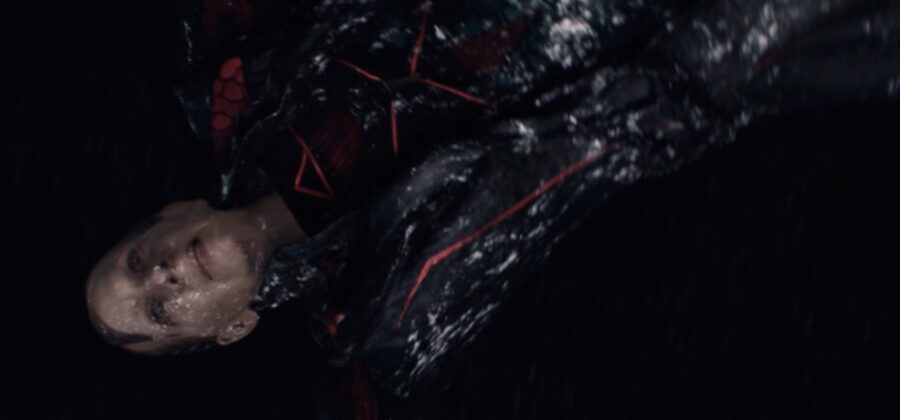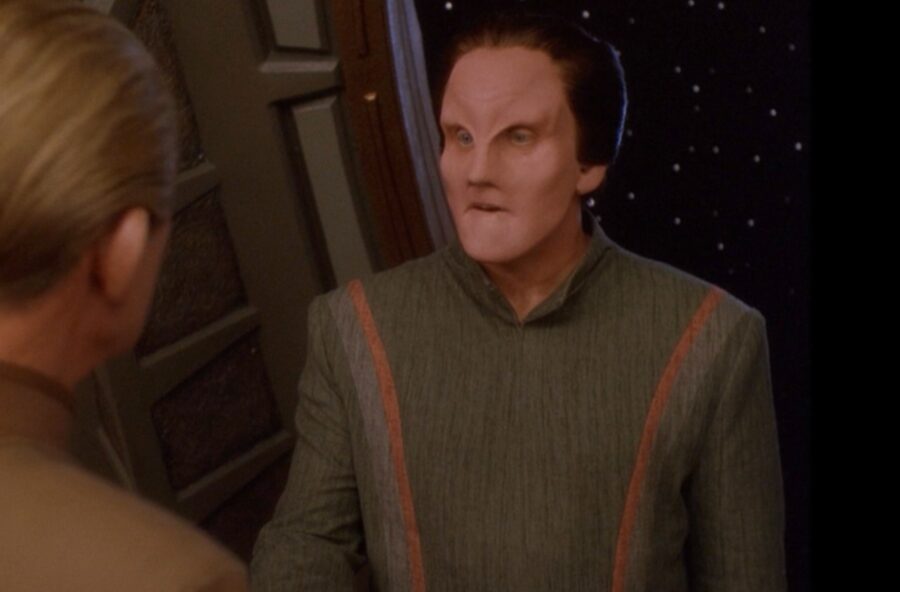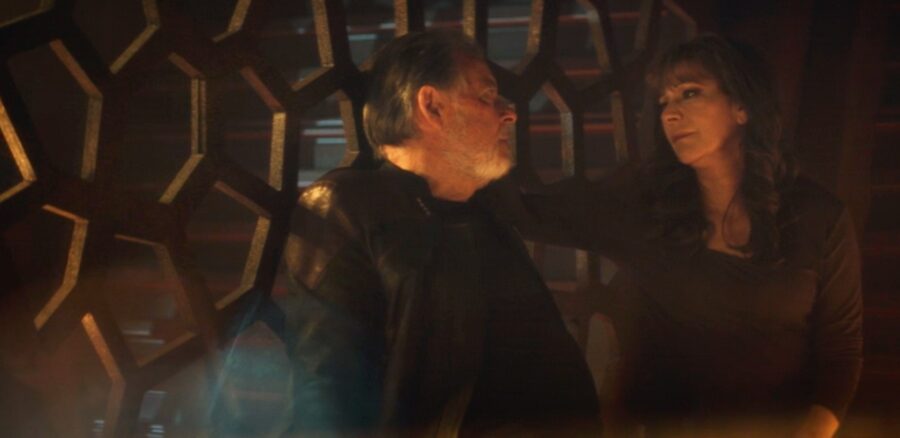Star Trek: Picard Just Betrayed Deanna Troi And The Changelings
In the most recent episode of Star Trek: Picard, both the abilities of Deanna Troi and those of the Changelings are seemingly forgotten.

In a franchise that’s over a half century old, you’re bound to get some inconsistencies here and there, but “Surrender” — the most recent episode of Star Trek: Picard — proves to be a big offender in two ways. First, it kills off a Changeling in a manner that Trek has previously shown would never work. Second, and much more importantly, it reveals that Deanna Troi (Marina Sirtis) used her Betazoid abilities to dull her husband’s emotions: something she should not only be unable to do, but that is disturbing considering such an act is usually treated in Trek like a sexual assault.

Dealing with the Changeling issue first: towards the end of “Surrender,” Vadic (Amanda Plummer) is seemingly killed when she’s blown into the vacuum of space. She floats helplessly, freezes solid, strikes her doomed ship The Shrike, and is shattered into thousands of pieces. Since there are two episodes left of Star Trek: Picard there’s a good chance we’ll get a resurrection, but even so this scene shouldn’t have happened because of what we learn about Changelings in the final season of Star Trek: Deep Space Nine.


He usually played the Klingon General Martok, but in “Chimera,” J.G. Hertzler instead plays Laas, a Changeling who — like Odo (Rene Auberjonois) — was one of the many that the Founders sent out in the galaxy when they were infants. Laas first comes in contact with Odo as the latter is in a shuttle and the former is flying around space in a beast’s form, very comfortably surviving. Since Vadic is a Changeling like Laas, there’s no reason being in space for a few moments should’ve killed her.
Of course, there are still two episodes left of Star Trek: Picard, so it’s possible — if not likely — that we’ll be shown Vadic survived “Surrender.” But regardless, she shouldn’t even have been phased by being blasted into space.

What’s much more disturbing is how the most recent episode of Star Trek: Picard goes against Troi’s history. We learn that the chief reason Riker (Jonathan Frakes) had been staying away from his family is that in the wake of their son’s death, Troi had been using her abilities to dull Riker’s emotions and his grief.
Troi has never been shown to be able to use her abilities in that way. Having only one Betazoid parent, Troi’s abilities as an empath have been shown to be mostly passive — she can sense how others feel but not alter those feelings.
But much more importantly, outside this episode of Star Trek: Picard, whenever a character has been shown to use empathic and/or telepathic abilities without the subject’s consent, it’s almost always blatantly likened to a sexual assault. In fact, that’s very much the case in 2002’s Star Trek: Nemesis when the Reman Viceroy (Ron Perlman) psychically assaults Troi. It’s likewise treated very similarly to a case of rape when T’Pol (Jolene Blalock) is forced into a mind-meld in the Season 2 Star Trek: Enterprise episode “Stigma.”
Even in the cases when such psychic assaults aren’t consciously compared to sexual ones, they’re still usually treated as acts of violence. The scene in 1991’s Star Trek: VI: The Undiscovered Country, for example, when Spock (Leonard Nimoy) mind-melds with the villain Valeris (Kim Cattrall) without her consent is easily the toughest part of the film to watch.
But when Troi mentions what she did in Star Trek: Picard, it isn’t treated with any particular significance, beyond being the reason Riker left. We’ll have to see if her violation is more directly confronted as the two final episodes of Picard drop on Paramount+ over the next two weeks.












